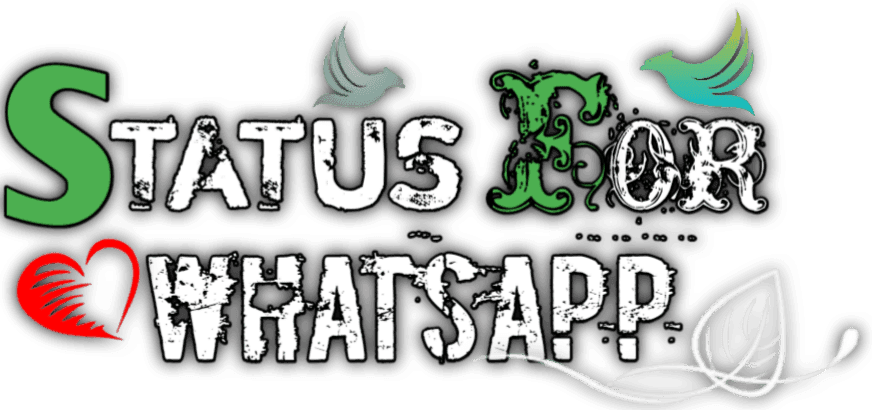Exploring the top universities for Digital Marketing
In the digital age, where virtually every aspect of our lives is influenced by the internet, the role of marketing has undergone a significant transformation. Digital marketing has emerged as a powerful tool for businesses to reach and engage with their target audiences in a dynamic and interactive manner. In this article, we delve into the fundamentals of digital marketing, exploring its key components, strategies, and benefits in today’s hyperconnected world.
Understanding Digital Marketing:
Digital marketing encompasses a broad range of online tactics and channels aimed at promoting products, services, or brands to a target audience. Unlike traditional marketing methods, which rely heavily on offline channels such as print, television, and radio, digital marketing leverages the vast reach and interactivity of the internet to connect with consumers in real-time.
Key Components of Digital Marketing:
Digital marketing encompasses various components, each serving a unique purpose in reaching and engaging with audiences:
Search Engine Optimization (SEO): SEO involves optimizing a website’s content, structure, and performance to rank higher in search engine results pages (SERPs). By improving visibility and organic traffic, businesses can attract more visitors and potential customers to their websites.
Content Marketing: Content marketing involves creating and distributing valuable, relevant, and consistent content to attract and retain a target audience. Content can take many forms, including blog posts, articles, videos, infographics, and social media posts, and is designed to educate, entertain, or inspire consumers while subtly promoting products or services.
Social Media Marketing: Social media marketing involves using social media platforms such as Facebook, Instagram, Twitter, LinkedIn, and YouTube to connect with audiences, build brand awareness, and drive engagement and conversions. Social media platforms offer powerful targeting options and interactive features that allow businesses to reach specific demographics and foster meaningful relationships with customers.
Email Marketing: Email marketing involves sending targeted, personalized messages to a list of subscribers to promote products, announce offers or promotions, and nurture customer relationships. Email marketing campaigns can be automated, allowing businesses to deliver relevant content at the right time and optimize conversions.
Pay-Per-Click (PPC) Advertising: PPC advertising involves placing ads on search engines or social media platforms and paying a fee each time a user clicks on the ad. PPC campaigns allow businesses to target specific keywords, demographics, and interests, driving traffic to their websites and generating leads or sales.
Benefits of Digital Marketing:
Digital marketing offers numerous benefits for businesses of all sizes, including:
Increased Reach and Visibility: Digital marketing allows businesses to reach a global audience and increase brand visibility through online channels accessible to consumers worldwide.
Targeted Advertising: Digital marketing platforms offer advanced targeting options, allowing businesses to reach specific demographics, interests, and behaviors with precision.
Measurable Results: Digital marketing campaigns can be tracked and analyzed in real-time, providing valuable insights into campaign performance, audience engagement, and return on investment (ROI).
Cost-Effectiveness: Digital marketing is often more cost-effective than traditional marketing methods, allowing businesses to reach larger audiences with smaller budgets.
Enhanced Engagement and Interaction: Digital marketing enables businesses to engage with consumers in real-time through interactive content, social media conversations, and personalized messaging, fostering meaningful relationships and brand loyalty.
Why Digital Marketing is Essential for Brands and Businesses
Introduction:
In an era dominated by smartphones, social media, and online connectivity, the importance of digital marketing for brands and businesses cannot be overstated. With consumers spending increasing amounts of time online, digital marketing has become an indispensable tool for reaching, engaging, and converting target audiences. In this article, we delve into the reasons why digital marketing is crucial for brands and businesses in today’s digital age.
Expanding Reach and Visibility:
Digital marketing allows brands and businesses to extend their reach far beyond traditional geographic boundaries. With the internet accessible to billions of people worldwide, digital marketing enables businesses to connect with audiences across diverse demographics, geographies, and interests. By leveraging digital channels such as search engines, social media platforms, and email, brands can increase their visibility and expand their market presence on a global scale.
Targeted Advertising:
One of the key advantages of digital marketing is its ability to target specific audience segments with precision. Unlike traditional mass media advertising, which casts a wide net in the hopes of reaching potential customers, digital marketing allows brands to tailor their messaging to highly segmented audiences based on demographics, interests, behaviors, and purchase intent. This targeted approach ensures that marketing efforts resonate with the right people at the right time, maximizing the efficiency and effectiveness of campaigns.
Measurable Results:
Digital marketing offers unparalleled insights into campaign performance, audience engagement, and return on investment (ROI). Through analytics tools and tracking technologies, brands can monitor the effectiveness of their digital marketing efforts in real-time, allowing for data-driven decision-making and continuous optimization. From website traffic and click-through rates to conversion rates and customer lifetime value, digital marketing provides measurable metrics that enable brands to evaluate the success of their campaigns and allocate resources strategically.
Cost-Effectiveness:
Compared to traditional forms of advertising such as television, radio, and print, digital marketing is often more cost-effective, particularly for small and medium-sized businesses with limited budgets. Digital marketing channels such as social media, email, and search engine marketing offer flexible pricing models, allowing brands to set their budgets and adjust spending based on performance. Additionally, digital marketing campaigns can be scaled up or down quickly and easily, providing greater agility and responsiveness to changing market conditions.
Enhanced Engagement and Interaction:
Digital marketing fosters meaningful interactions and engagement between brands and consumers, creating opportunities for dialogue, feedback, and relationship-building. Through social media platforms, brands can engage with customers in real-time, responding to inquiries, addressing concerns, and soliciting feedback. Similarly, email marketing campaigns enable brands to deliver personalized messages and offers directly to consumers’ inboxes, fostering a sense of connection and loyalty. By fostering engagement and interaction, digital marketing humanizes brands and strengthens relationships with customers, leading to increased trust and loyalty over time.
Why Choose Digital Marketing as a Career
Introduction:
In today’s rapidly evolving digital landscape, the demand for skilled digital marketers has never been higher. As businesses increasingly shift their focus towards online channels to reach and engage with consumers, the field of digital marketing offers exciting opportunities for individuals seeking a dynamic and rewarding career. In this article, we explore the compelling reasons why choosing digital marketing as a career path can lead to professional growth, fulfillment, and success.
Thriving Industry Demand:
The digital marketing industry is experiencing exponential growth, driven by the proliferation of digital technologies, the rise of e-commerce, and the increasing reliance on online channels for marketing and advertising. As businesses recognize the importance of digital presence and engagement, the demand for skilled digital marketers continues to soar. From small startups to multinational corporations, companies across industries are seeking digital marketing professionals with expertise in areas such as SEO, social media marketing, content marketing, and data analytics.
Diverse Career Opportunities:
Digital marketing offers a diverse array of career paths and specializations, allowing individuals to pursue roles that align with their interests, skills, and aspirations. Whether it’s crafting compelling content as a content marketer, optimizing websites for search engines as an SEO specialist, managing paid advertising campaigns as a PPC strategist, or analyzing data as a digital analyst, there are countless opportunities for growth and advancement in the field. Additionally, digital marketing professionals have the flexibility to work in various industries, including e-commerce, technology, healthcare, finance, and entertainment, further expanding their career options.
Creativity and Innovation:
Digital marketing is inherently creative and innovative, requiring professionals to think outside the box and adapt to ever-changing trends and technologies. Whether it’s devising engaging social media campaigns, producing viral content, or leveraging emerging technologies such as artificial intelligence and augmented reality, digital marketers have the opportunity to unleash their creativity and drive impactful results. In the fast-paced world of digital marketing, there’s always room for experimentation and innovation, making it an exciting and dynamic field to work in.
Data-Driven Decision Making:
One of the defining characteristics of digital marketing is its emphasis on data-driven decision making. Digital marketers have access to a wealth of data and analytics tools that provide insights into consumer behavior, campaign performance, and market trends. By analyzing data and metrics, digital marketers can identify opportunities for optimization, refine targeting strategies, and measure the impact of their efforts. This analytical approach not only enhances the effectiveness of marketing campaigns but also fosters a culture of continuous learning and improvement.
Remote Work Opportunities:
Digital marketing lends itself well to remote work arrangements, allowing professionals to work from anywhere with an internet connection. With the proliferation of digital communication tools and collaboration platforms, remote teams can collaborate effectively and efficiently, regardless of geographical location. This flexibility enables digital marketers to achieve a better work-life balance, reduce commute times, and pursue their career goals while enjoying the freedom to travel and explore new opportunities.
Exploring Essential Subjects for Success
Introduction:
Embarking on a digital marketing course is a journey into the dynamic and ever-evolving world of online promotion and engagement. Aspiring digital marketers must navigate through a diverse array of subjects to gain a comprehensive understanding of the field. In this article, we explore the essential subjects typically covered in a digital marketing course, each contributing to the knowledge and skills necessary for success in this fast-paced industry.
Fundamentals of Marketing:
Before diving into the intricacies of digital marketing, students must first grasp the foundational principles of marketing. This includes understanding key concepts such as market segmentation, target audience analysis, branding, positioning, and the marketing mix (product, price, place, promotion). A solid understanding of marketing fundamentals provides the framework for effective digital marketing strategies and tactics.
Digital Marketing Strategy:
Digital marketing strategy is the blueprint that guides all online marketing efforts. Students learn how to develop comprehensive digital marketing plans aligned with business objectives, target audience preferences, and market trends. This includes setting clear goals, defining target personas, selecting appropriate digital channels, and allocating resources effectively. A well-crafted digital marketing strategy lays the groundwork for successful campaigns and initiatives.
Search Engine Optimization (SEO):
SEO is a fundamental aspect of digital marketing, focused on optimizing websites to rank higher in search engine results pages (SERPs). Students learn about on-page SEO techniques (such as keyword research, meta tags, and content optimization) and off-page SEO strategies (such as link building and social signals). Understanding SEO principles is essential for driving organic traffic, improving visibility, and increasing website authority.
Content Marketing:
Content is the cornerstone of digital marketing, serving as the fuel that powers engagement, attracts leads, and builds brand authority. Students learn how to create compelling and relevant content across various formats, including blog posts, articles, videos, infographics, and social media posts. They also explore content distribution strategies, content calendar planning, and metrics for measuring content performance.
Social Media Marketing:
Social media has become a ubiquitous part of everyday life, offering unparalleled opportunities for brands to connect with their target audiences. Students delve into the intricacies of social media marketing, learning how to develop engaging content, build and manage social media profiles, cultivate communities, and leverage social advertising platforms. They also explore social media analytics tools for measuring engagement, reach, and ROI.
Pay-Per-Click (PPC) Advertising:
PPC advertising is a powerful tool for driving targeted traffic to websites and generating leads or sales. Students learn how to create and optimize PPC campaigns on platforms such as Google Ads and social media advertising networks. They study keyword research, ad copywriting, bidding strategies, ad targeting options, and performance tracking. Mastery of PPC advertising allows digital marketers to maximize ad spend and achieve desired outcomes.
Email Marketing:
Email marketing remains one of the most effective channels for nurturing leads, driving conversions, and fostering customer relationships. Students explore email marketing best practices, including list building, segmentation, personalization, automation, and A/B testing. They also learn how to craft compelling email copy, design visually appealing templates, and measure email campaign performance metrics such as open rates, click-through rates, and conversions.
Web Analytics and Data Analysis:
Data is the lifeblood of digital marketing, providing insights into audience behavior, campaign performance, and overall business impact. Students learn how to set up and interpret web analytics tools such as Google Analytics, track key performance indicators (KPIs), and generate reports. They also explore data analysis techniques for identifying trends, optimizing campaigns, and making data-driven decisions to improve marketing outcomes.
Exploring Essential Subjects for Success
Embarking on a digital marketing course is a journey into the dynamic and ever-evolving world of online promotion and engagement. Aspiring digital marketers must navigate through a diverse array of subjects to gain a comprehensive understanding of the field. In this article, we explore the essential subjects typically covered in a digital marketing course, each contributing to the knowledge and skills necessary for success in this fast-paced industry.
Fundamentals of Marketing:
Before diving into the intricacies of digital marketing, students must first grasp the foundational principles of marketing. This includes understanding key concepts such as market segmentation, target audience analysis, branding, positioning, and the marketing mix (product, price, place, promotion). A solid understanding of marketing fundamentals provides the framework for effective digital marketing strategies and tactics.
Digital Marketing Strategy:
Digital marketing strategy is the blueprint that guides all online marketing efforts. Students learn how to develop comprehensive digital marketing plans aligned with business objectives, target audience preferences, and market trends. This includes setting clear goals, defining target personas, selecting appropriate digital channels, and allocating resources effectively. A well-crafted digital marketing strategy lays the groundwork for successful campaigns and initiatives.
Search Engine Optimization (SEO):
SEO is a fundamental aspect of digital marketing, focused on optimizing websites to rank higher in search engine results pages (SERPs). Students learn about on-page SEO techniques (such as keyword research, meta tags, and content optimization) and off-page SEO strategies (such as link building and social signals). Understanding SEO principles is essential for driving organic traffic, improving visibility, and increasing website authority.
Content Marketing:
Content is the cornerstone of digital marketing, serving as the fuel that powers engagement, attracts leads, and builds brand authority. Students learn how to create compelling and relevant content across various formats, including blog posts, articles, videos, infographics, and social media posts. They also explore content distribution strategies, content calendar planning, and metrics for measuring content performance.
Social Media Marketing:
Social media has become a ubiquitous part of everyday life, offering unparalleled opportunities for brands to connect with their target audiences. Students delve into the intricacies of social media marketing, learning how to develop engaging content, build and manage social media profiles, cultivate communities, and leverage social advertising platforms. They also explore social media analytics tools for measuring engagement, reach, and ROI.
Pay-Per-Click (PPC) Advertising:
PPC advertising is a powerful tool for driving targeted traffic to websites and generating leads or sales. Students learn how to create and optimize PPC campaigns on platforms such as Google Ads and social media advertising networks. They study keyword research, ad copywriting, bidding strategies, ad targeting options, and performance tracking. Mastery of PPC advertising allows digital marketers to maximize ad spend and achieve desired outcomes.
Email Marketing:
Email marketing remains one of the most effective channels for nurturing leads, driving conversions, and fostering customer relationships. Students explore email marketing best practices, including list building, segmentation, personalization, automation, and A/B testing. They also learn how to craft compelling email copy, design visually appealing templates, and measure email campaign performance metrics such as open rates, click-through rates, and conversions.
Web Analytics and Data Analysis:
Data is the lifeblood of digital marketing, providing insights into audience behavior, campaign performance, and overall business impact. Students learn how to set up and interpret web analytics tools such as Google Analytics, track key performance indicators (KPIs), and generate reports. They also explore data analysis techniques for identifying trends, optimizing campaigns, and making data-driven decisions to improve marketing outcomes.
Exploring the Top Universities for Digital Marketing Studies
Introduction:
In an era dominated by digital connectivity and online commerce, the demand for skilled digital marketers continues to rise exponentially. To meet this demand, universities around the world are offering innovative programs dedicated to the study of digital marketing. These programs equip students with the knowledge and skills needed to thrive in the dynamic and fast-paced field of online promotion. In this article, we explore some of the top universities renowned for their exceptional digital marketing programs.
Harvard University – Extension School:
Harvard University’s Extension School offers a comprehensive Digital Marketing Certificate Program designed for professionals seeking to enhance their skills and expertise in online marketing. The program covers a wide range of topics, including search engine optimization (SEO), pay-per-click (PPC) advertising, social media marketing, content marketing, email marketing, analytics, and strategy. Taught by industry experts and Harvard faculty, the program provides a rigorous and practical education in digital marketing principles and techniques.
University of California, Berkeley – Haas School of Business:
The University of California, Berkeley’s Haas School of Business offers a Digital Marketing Certificate Program designed for working professionals looking to advance their careers in digital marketing. The program covers key areas such as digital strategy, social media marketing, search engine marketing (SEM), email marketing, analytics, and optimization. With a focus on experiential learning and real-world applications, the program equips students with the skills and insights needed to drive business results in the digital age.
Columbia University – School of Professional Studies:
Columbia University’s School of Professional Studies offers a Digital Marketing Strategy Certificate Program designed for individuals seeking to develop expertise in digital marketing strategy and execution. The program covers topics such as digital marketing fundamentals, content strategy, social media marketing, SEO, PPC advertising, analytics, and data-driven decision making. Taught by industry practitioners and Columbia faculty, the program provides students with a comprehensive understanding of digital marketing principles and best practices.
University of Pennsylvania – Wharton School:
The University of Pennsylvania’s Wharton School offers a Digital Marketing Certificate Program designed for marketing professionals looking to enhance their digital marketing skills and capabilities. The program covers topics such as digital strategy, customer acquisition, social media marketing, content marketing, SEO, PPC advertising, email marketing, and analytics. With a focus on data-driven decision making and strategic thinking, the program equips students with the tools and insights needed to succeed in the fast-paced world of digital marketing.
Massachusetts Institute of Technology (MIT) – Sloan School of Management:
MIT’s Sloan School of Management offers a Digital Marketing and Social Media Analytics Certificate Program designed for professionals seeking to leverage data and analytics to drive digital marketing success. The program covers topics such as digital marketing strategy, social media marketing, content marketing, SEO, PPC advertising, web analytics, and data visualization. With a focus on hands-on learning and real-world applications, the program equips students with the skills and techniques needed to analyze, interpret, and act on digital marketing data effectively.
Northwestern University – Kellogg School of Management:
Northwestern University’s Kellogg School of Management offers a Digital Marketing Strategies Certificate Program designed for marketing professionals seeking to deepen their expertise in digital marketing strategy and execution. The program covers topics such as digital marketing fundamentals, social media marketing, content marketing, SEO, PPC advertising, analytics, and customer engagement. With a focus on strategic thinking and data-driven decision making, the program prepares students to drive business results in the digital age.
New York University (NYU) – School of Professional Studies:
NYU’s School of Professional Studies offers a Digital Marketing Certificate Program designed for individuals looking to advance their careers in digital marketing. The program covers key areas such as digital strategy, social media marketing, content marketing, SEO, PPC advertising, email marketing, analytics, and conversion optimization. With a focus on experiential learning and practical applications, the program equips students with the skills and knowledge needed to succeed in the fast-paced world of digital marketing.
University of Michigan – Ross School of Business:
The University of Michigan’s Ross School of Business offers a Digital Marketing Certificate Program designed for professionals seeking to develop expertise in digital marketing strategy and implementation. The program covers topics such as digital marketing fundamentals, social media marketing, content marketing, SEO, PPC advertising, analytics, and data-driven decision making. With a focus on hands-on learning and real-world projects, the program prepares students to drive business growth and innovation in the digital age.
Georgetown University – School of Continuing Studies:
Georgetown University’s School of Continuing Studies offers a Digital Marketing Certificate Program designed for working professionals looking to enhance their skills in digital marketing strategy and execution. The program covers topics such as digital marketing fundamentals, social media marketing, content marketing, SEO, PPC advertising, email marketing, analytics, and optimization. With a focus on practical applications and industry best practices, the program equips students with the tools and insights needed to succeed in today’s competitive digital landscape.
Duke University – Fuqua School of Business:
Duke University’s Fuqua School of Business offers a Digital Marketing Certificate Program designed for marketing professionals seeking to leverage digital channels to drive business growth and innovation. The program covers key areas such as digital strategy, social media marketing, content marketing, SEO, PPC advertising, email marketing, analytics, and optimization. With a focus on strategic thinking and data-driven decision making, the program prepares students to navigate the complexities of digital marketing and achieve measurable results for their organizations.
In conclusion, the top universities for digital marketing offer rigorous programs designed to equip students with the knowledge, skills, and practical experience needed to thrive in today’s fast-paced digital landscape. These institutions provide comprehensive education covering a wide range of topics, including digital marketing strategy, social media marketing, content marketing, SEO, PPC advertising, email marketing, analytics, and optimization.
By enrolling in these programs, students have the opportunity to learn from industry experts and esteemed faculty members who are at the forefront of digital marketing innovation. The hands-on learning approach, combined with real-world projects and case studies, ensures that students graduate with the practical skills and insights needed to succeed in their careers.
Furthermore, the reputation and prestige of these universities can provide students with a competitive advantage in the job market, opening doors to exciting career opportunities and advancement in the field of digital marketing.
Overall, the top universities for digital marketing offer a pathway to success, empowering students to become skilled professionals capable of driving business growth, innovation, and impact in the dynamic and ever-evolving world of online marketing.






